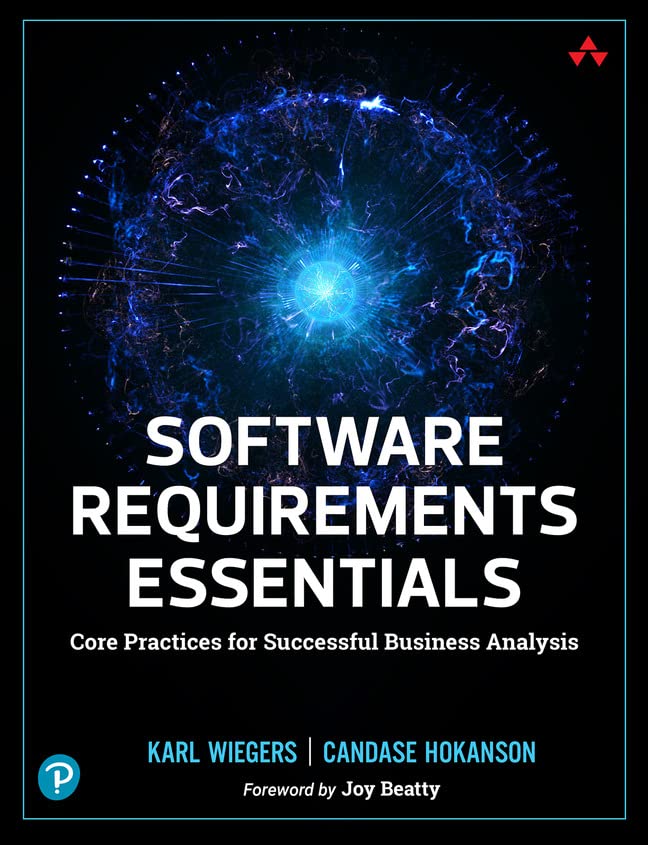Online Software Requirements Training
Learn Best Practices for Developing and Managing Requirements on Any Project
- Clarify Problems and Define Business Objectives
- Identify Stakeholders and Decision Makers
- Review, Test and Manage Changes

The Software Requirements Essentials course presents 20 best practices for developing and managing requirements on any software or systems development project.
The 20 practices described in the course are grouped into six sections:
- 5 practices that lay the foundation for success
- 4 practices for requirements elicitation
- 4 practices for requirements analysis
- 4 practices for requirements specification
- 1 practice for requirements validation
- 2 practices for requirements management
Leading requirements experts Karl Wiegers and Candase Hokanson focus on the practices most likely to deliver superior value for both traditional and agile projects, in any application domain. These core practices help teams understand business problems, engage the right participants, articulate better solutions, improve communication, implement the most valuable functionality in the right sequence, and adapt to change and growth.
Based on the popular book, Software Requirements Essentials, written by the course instructors, this three-hour online, on-demand course offers pragmatic “how-to” detail for you to apply the core practices with confidence.
About the Instructors

Karl Wiegers
Karl is the Principal Consultant at Process Impact. His many books and articles are highly popular among business analysts and requirements engineers worldwide. Karl has delivered more than 350 training courses and presentations on software requirements and business analysis. He has a PhD in organic chemistry.
Candase Hokanson
Candase is a business architect at ArgonDigital. She has written numerous articles on best practices in requirements management and agile product ownership.
Software Requirements Essentials
Frequently Asked Requirements Training Questions
This course describes many valuable techniques for anyone involved in requirements development or requirements management activities, including business analysts, product managers, product owners, requirements engineers, developers, testers, project managers, and even user representatives.
The practices presented in this course can add value and reduce risk on any software development project, regardless of the development lifecycle being followed. The instructors describe how the practices can apply to traditional, agile, and hybrid development activities.
No prerequisite knowledge or preparation is required. The material presented is highly accessible and valuable for novice, intermediate, and experienced business analysts.
We’ve Trained Over 2500 People to be Requirements Experts!
Writing requirements is hard, but we can train you and your team to be successful. Join over 2,500 analysts, product managers, IT and Business stakeholders who have increased the success rate of their projects by improving the quality of requirements. Here are just a few of our happy clients:
Software Requirements Essentials
“Diamonds come about when a huge amount of carbon atoms are compressed. Karl and Candase have done something very similar: they have compressed their vast requirements knowledge into 20 gems they call ‘core practices.’ These practices are potent stuff, and I recommend that they become part of everyone’s requirements arsenal.”
—James Robertson, author of Mastering the Requirements Process and Business Analysis Agility











